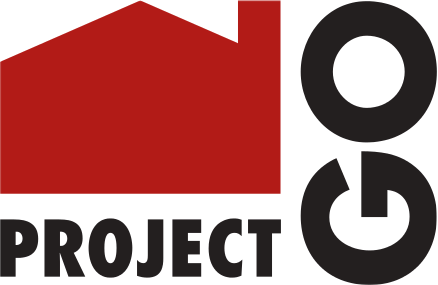










ABOUT US
Project GO, Inc. was founded in 1978 by a group of community-minded folks who had a vision and consensus on the idea that a private non-profit enterprise could operate more efficiently and effectively than government.
The Board of Directors of Project GO, Inc. (PGI) then submitted their first bid to the Placer County Human Services Department, to administer and operate a program designed for energy conservation assistance for our low-income residents. We were selected and sanctioned by the Placer County Board of Supervisors, as the eligible entity to receive all available grants funding for energy conservation assistance for low-income residents.
The initial grant, in the amount of $40,000, passed through the State Office of Economic Opportunity (now the California Department of Community Services and Development (CSD). The funds were to be utilized for conservation materials, overhead and administration, and the labor was provided though the California Employment Training Agency (CETA). The program was operated out of an abandoned Church on North Grant Street in Roseville, which served as office, warehouse, and Board meeting room. The staff provided weatherization assistance for approximately ten low-income households per month.
In the 1980s our country was in the middle of an oil embargo, with skyrocketing energy costs, and a newfound emphasis on energy conservation, with advocacy efforts to fund programs for those who could not afford to invest in these types of improvements themselves. Also, at this time, the CETA labor program ended, and PGI was forced to utilize limited grant funds to hire permanent staff.
In 1983, PGI successfully submitted a bid to Pacific Gas & Electric Co. (PG&E), to operate their first years low-income energy conservation program - “Project HELP,” which was administered by the California/Nevada Community Action Association. PGI successfully bid and fulfilled contractual obligations for the PG&E low-income programs between 1983 and 1995, and started again in 2014. The program name has changed, and so has the administering agency, as well as the expansion of the basic energy conservation measures. PGI staff has installed energy conservation measures on approximately 10,400 low-income residences during this time with grant funds from PG&E. We estimate having provided assistance to over 39,500 low-income households from a variety of funding sources since our inception.
In 1985, realizing that we were “dead-heading” large tractor-trailer rigs back to the cellulose insulation manufacturing plant in Reno, our Executive Director worked with a local group of volunteers and formed the “News Reused” newspaper recycling program. The motto was “Save Newspapers Today, Save Energy Tomorrow.” The previously empty trailers were now being shipped back to Reno full of newspaper, which was traded for bags of cellulose insulation. This insulation was installed in the attics of low-income families who were slightly above the income restrictions of the State and utility funded programs, but were still in need of help. The entire community of Colfax, California received free insulation in their residential attics as a result of this program. We received State and National recognition for our “Energy Innovation,” and were presented with honors in Washington D.C. in November of 1985 by the Department of Energy Secretary Harrington.
PGI began to some enmass unrestricted funds and the Board of Directors started planning for future projects to benefit our low-income clients. We were well aware of the dire need for more affordable housing, and the Board directed staff to investigate the options for utilizing our profits in this arena.
We learned about the IRS Low-income Housing Tax Credit Program, for which we could use our profits as “seed” money to develop a low-income apartment community, and Maidu Village I became a reality in November of 1991, housing 80 low-income senior citizens in the prestigious community of Johnson Ranch in Roseville, California. We quickly became developers – “gambling” our hard earned profits in the fast moving realm of development and construction. Other apartment communities worked their way to the planning table. Our “seed” money was well utilized, and has multiplied many times over with the profits incurred from these developments.
We are very fortunate that we have had a very forward-looking Board of Directors and staff, and an entrepreneurial spirit and openness to challenge. The history of Project GO, Inc. lives on, and we have often been quoted to say “Today, Placer County — Tomorrow, the World!” We will find the need and we will fill it!










